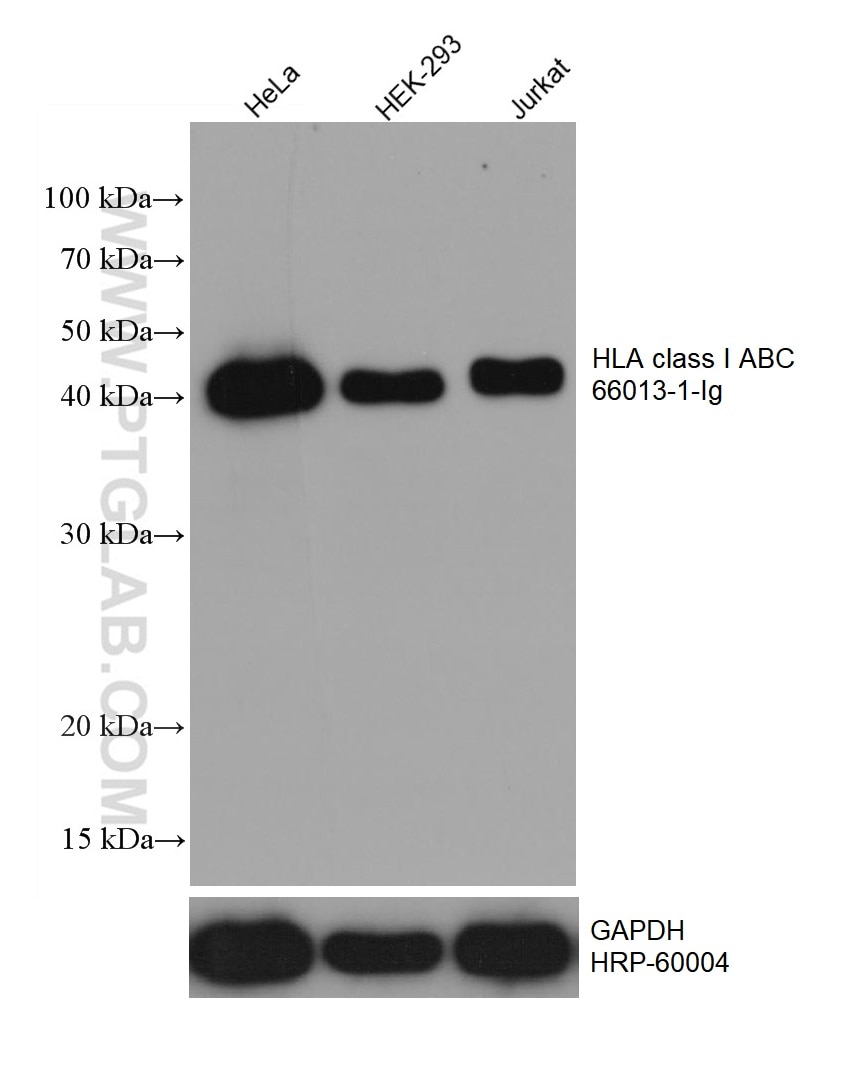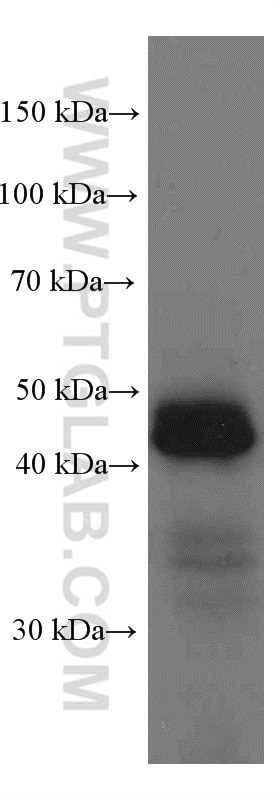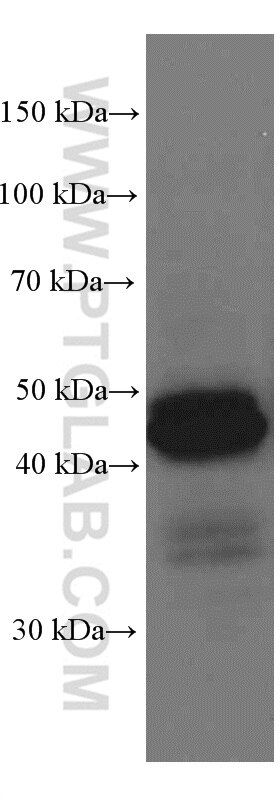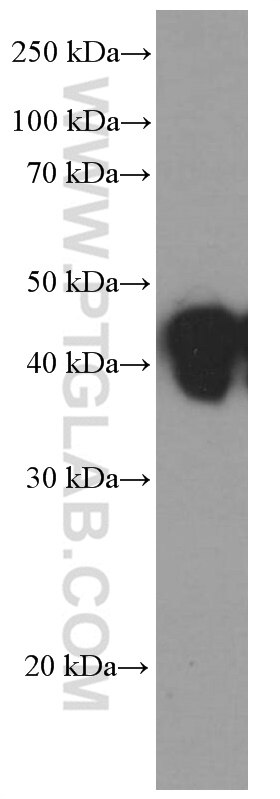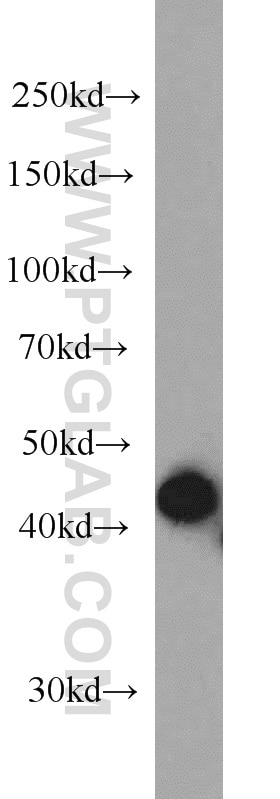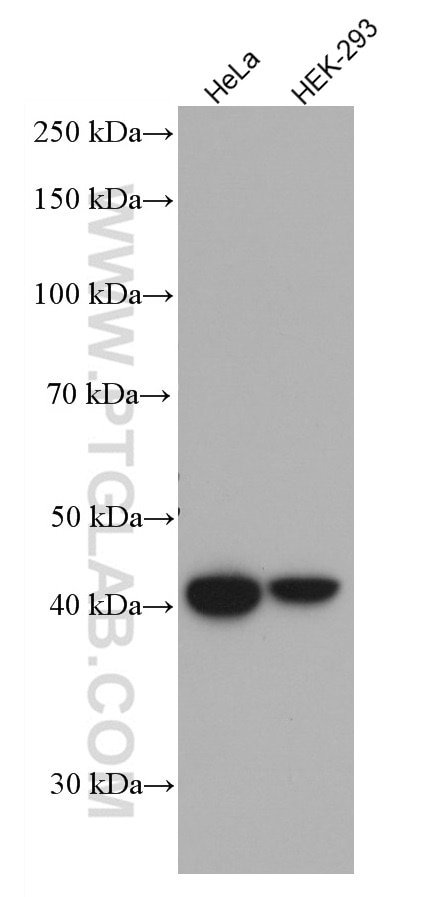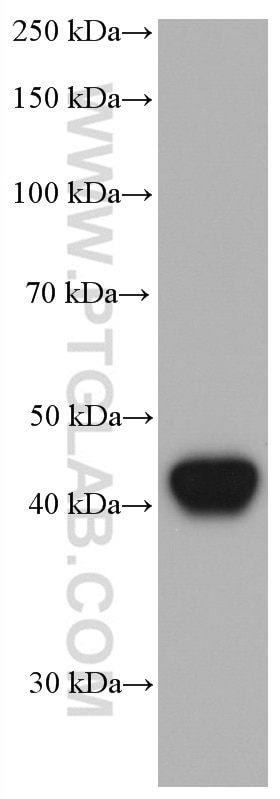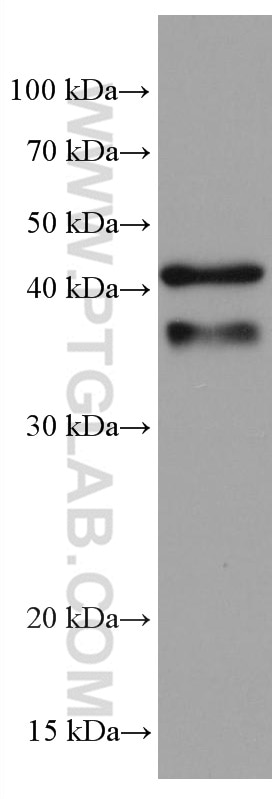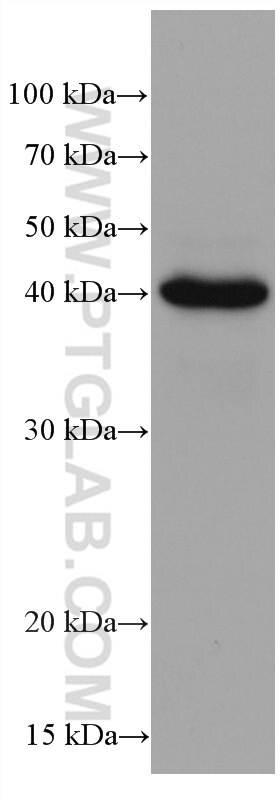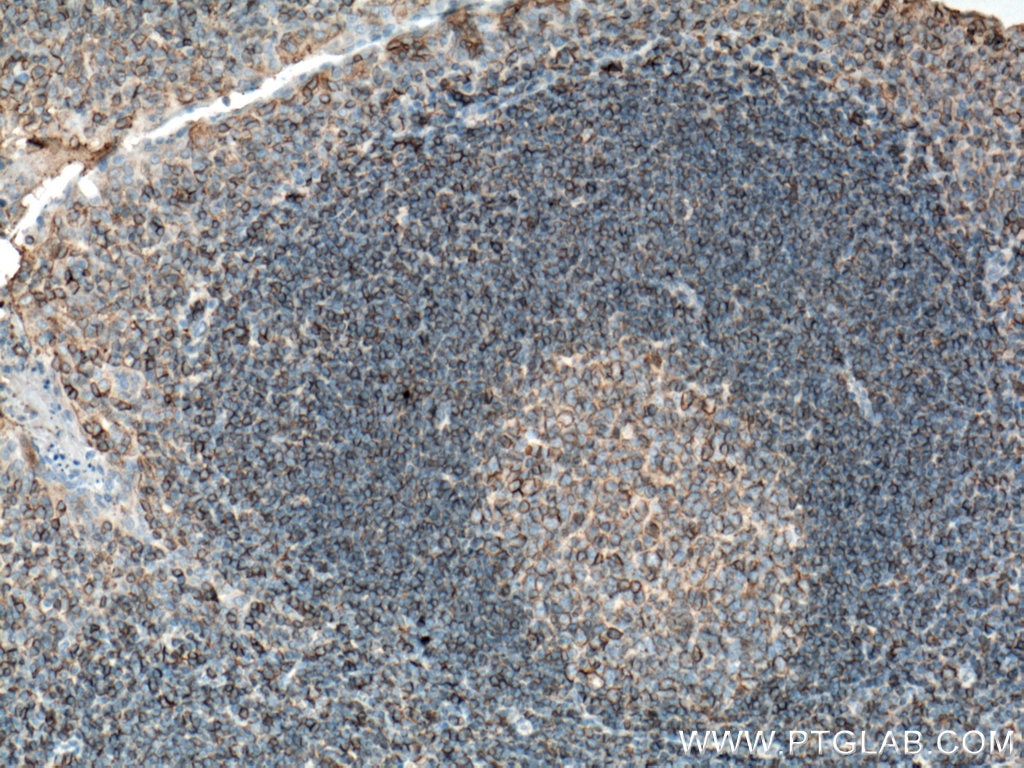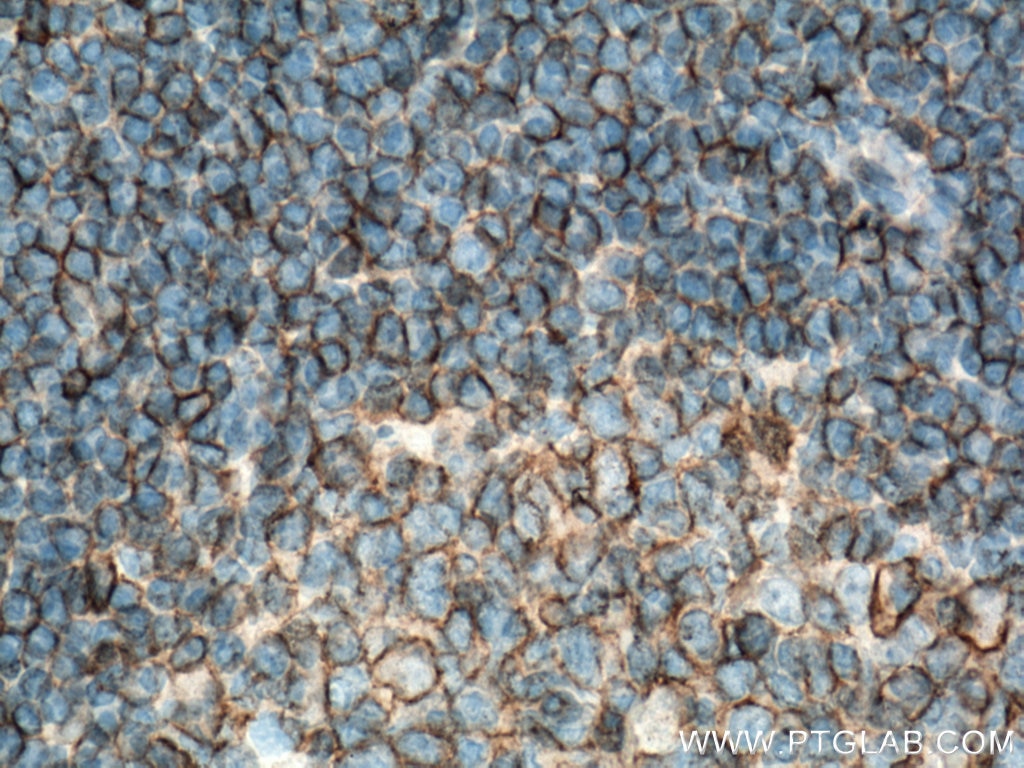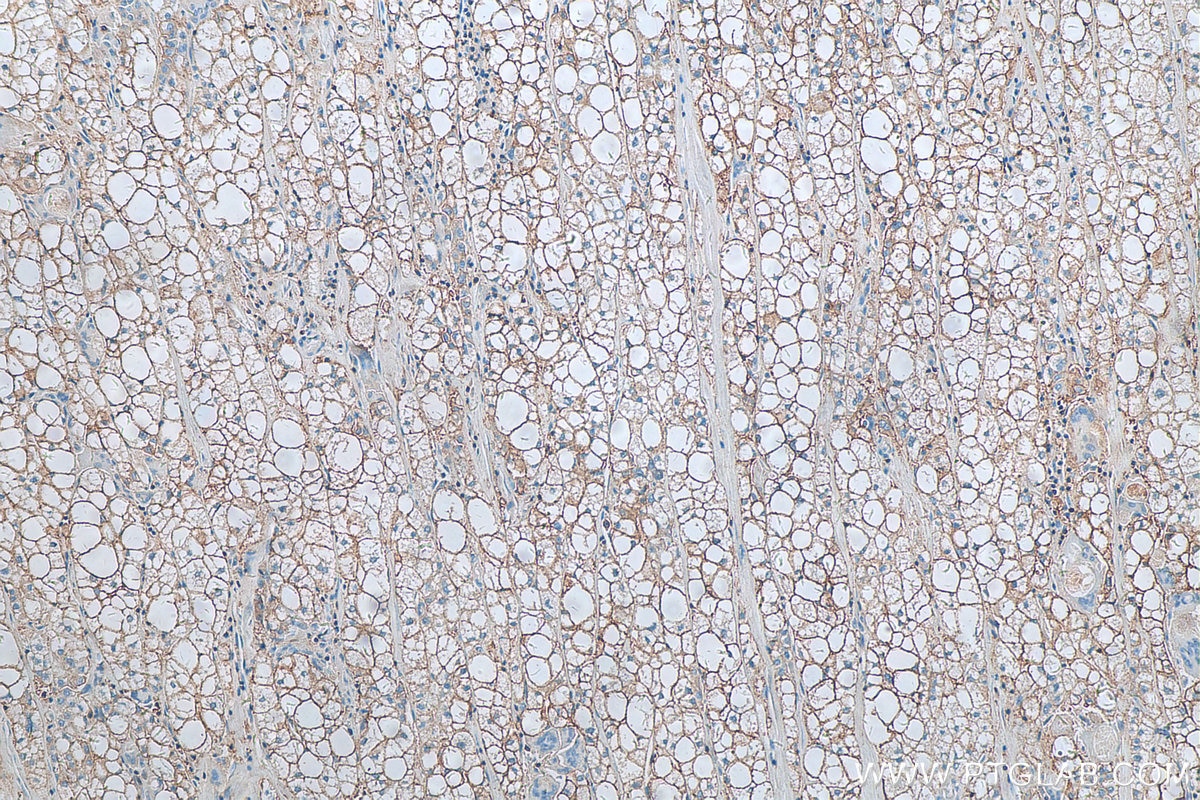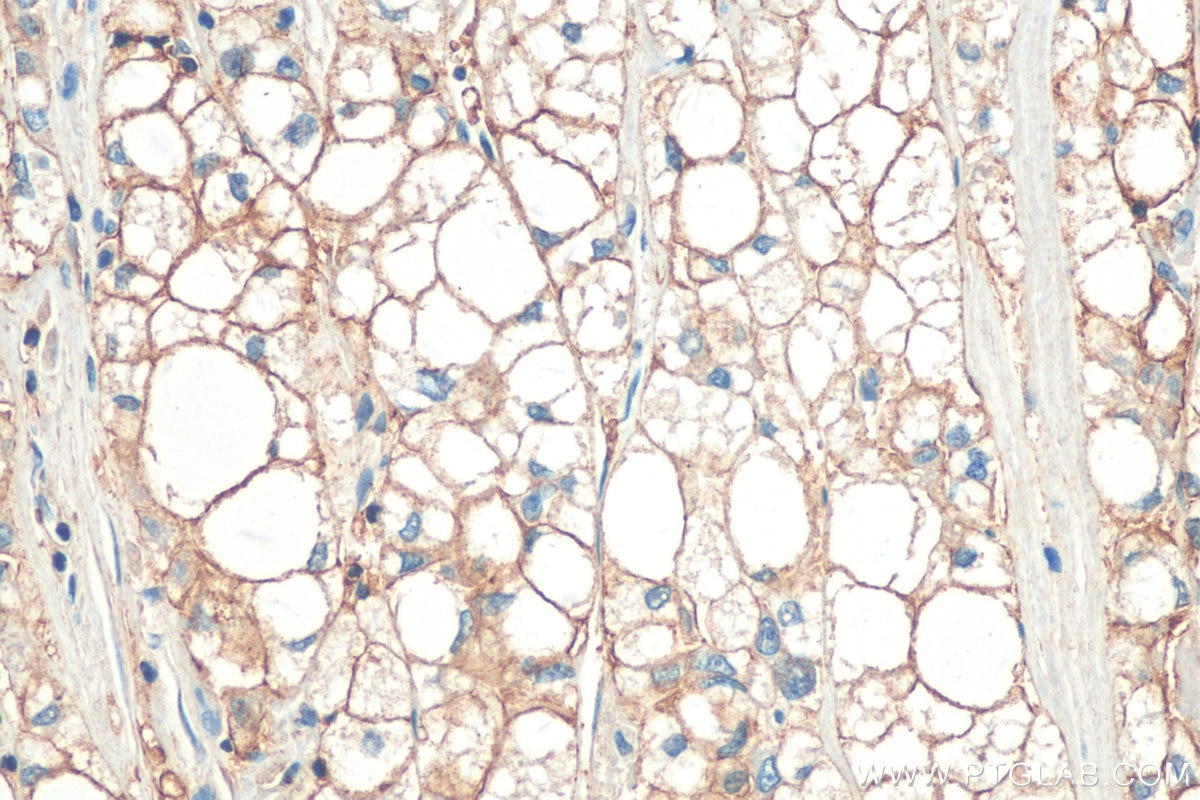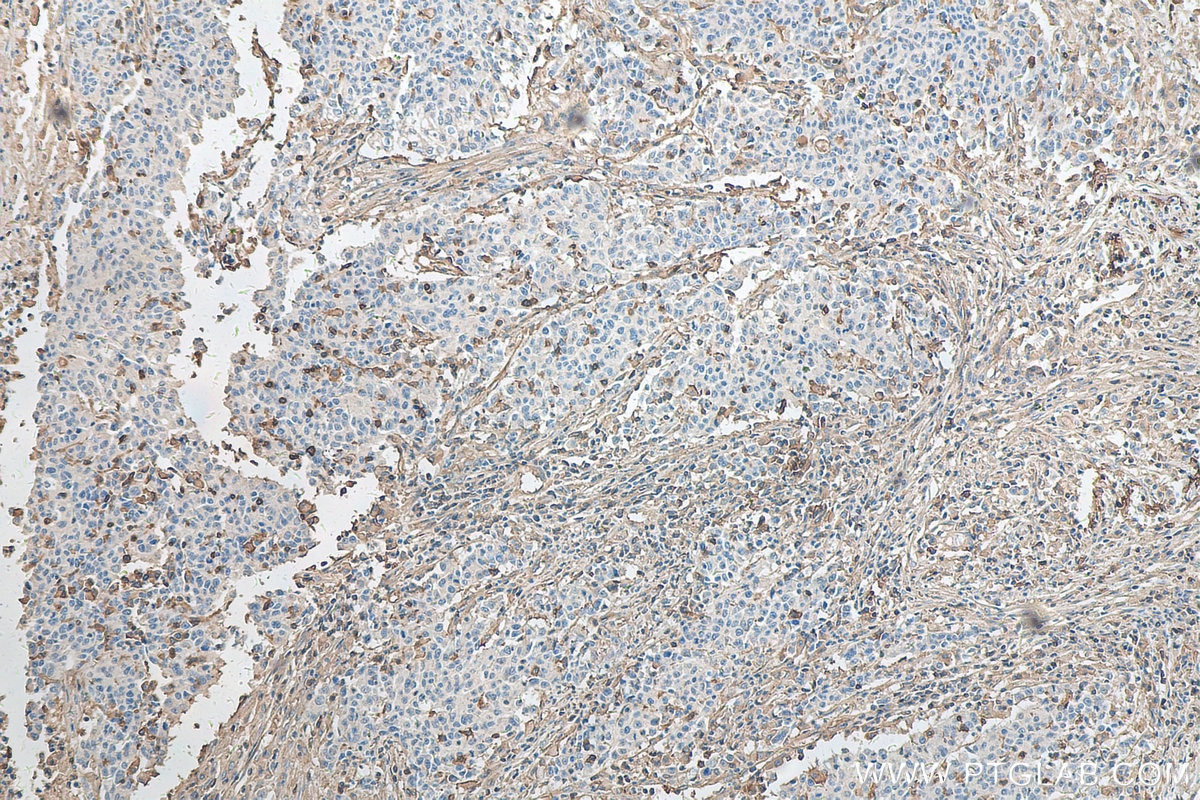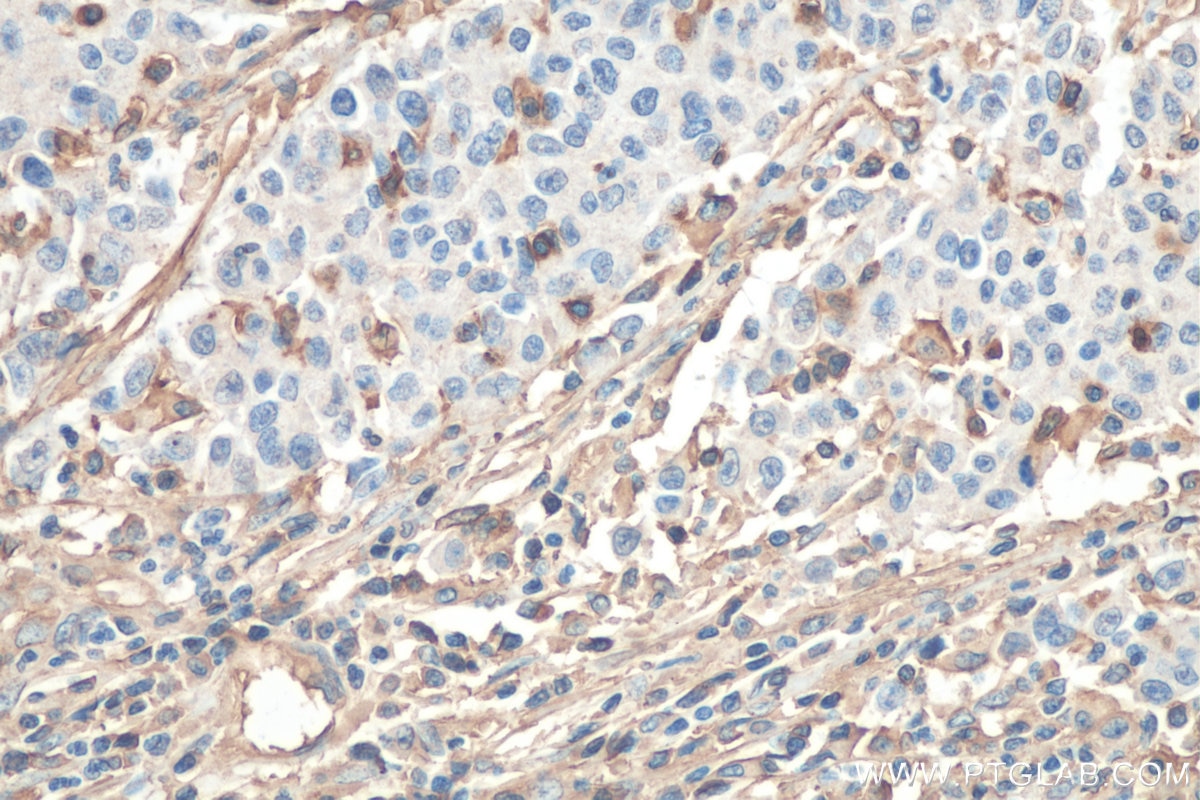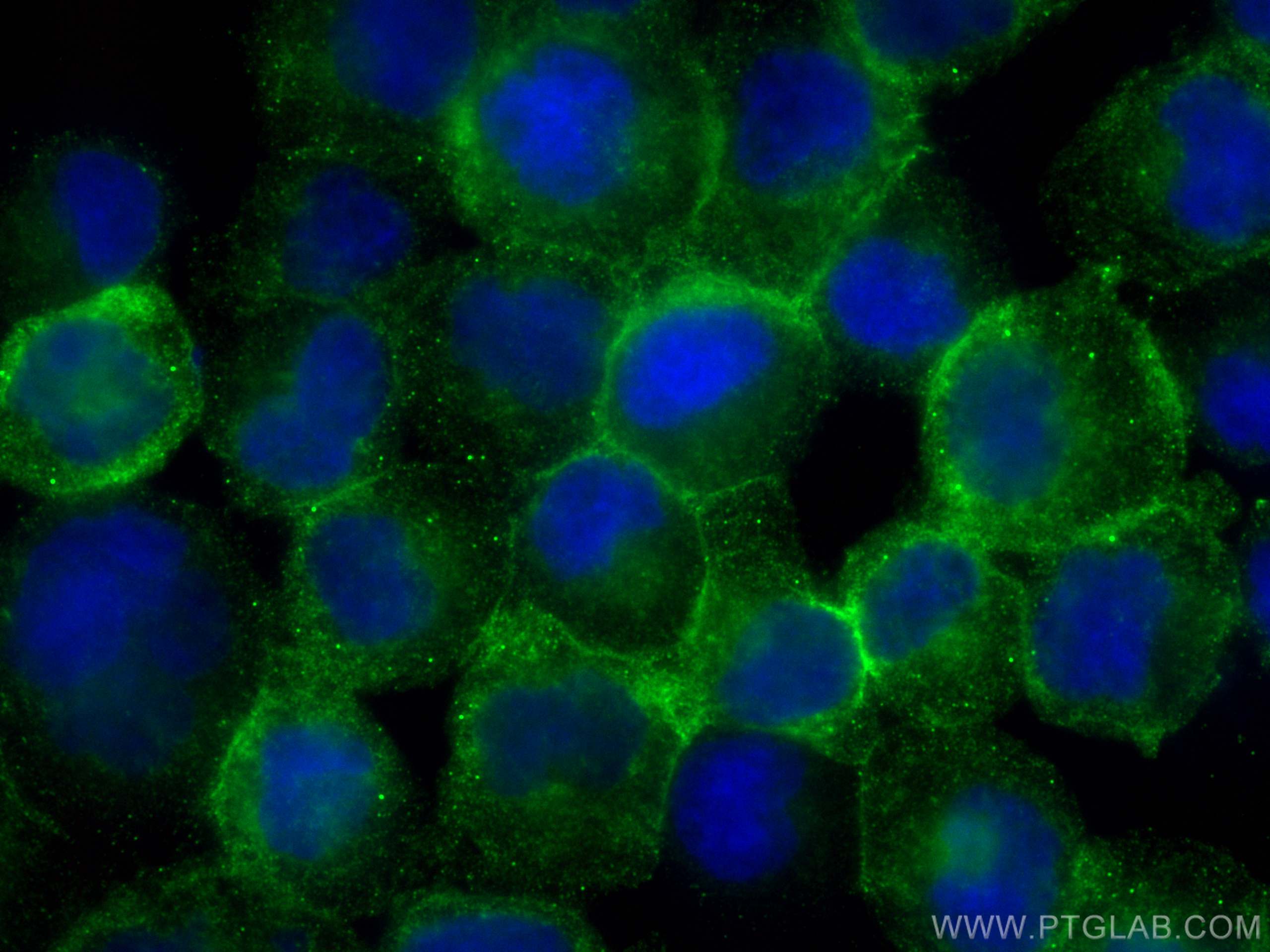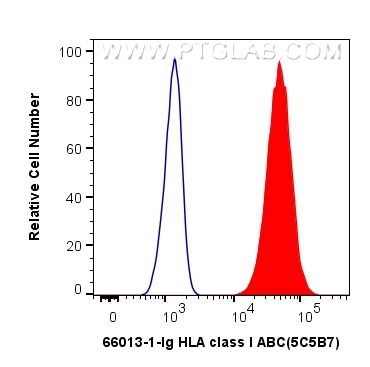- Phare
- Validé par KD/KO
Anticorps Monoclonal anti-HLA class I ABC
HLA class I ABC Monoclonal Antibody for WB, IHC, IF/ICC, FC, ELISA
Hôte / Isotype
Mouse / IgG2b
Réactivité testée
Humain, porc
Applications
WB, IHC, IF/ICC, FC, IP, ELISA
Conjugaison
Non conjugué
CloneNo.
5C5B7
N° de cat : 66013-1-Ig
Synonymes
Galerie de données de validation
Applications testées
| Résultats positifs en WB | cellules HeLa, cellules HEK-293, cellules HepG2, cellules Jurkat, cellules NCCIT, cellules Raji, cellules U-937, globules blancs humains, tissu splénique de porc |
| Résultats positifs en IHC | tissu d'amygdalite humain, tissu de cancer de l'estomac humain, tissu de cancer du foie humain il est suggéré de démasquer l'antigène avec un tampon de TE buffer pH 9.0; (*) À défaut, 'le démasquage de l'antigène peut être 'effectué avec un tampon citrate pH 6,0. |
| Résultats positifs en IF/ICC | cellules Raji, |
| Résultats positifs en cytométrie | cellules Raji, |
Dilution recommandée
| Application | Dilution |
|---|---|
| Western Blot (WB) | WB : 1:5000-1:50000 |
| Immunohistochimie (IHC) | IHC : 1:1000-1:10000 |
| Immunofluorescence (IF)/ICC | IF/ICC : 1:400-1:1600 |
| Flow Cytometry (FC) | FC : 0.40 ug per 10^6 cells in a 100 µl suspension |
| It is recommended that this reagent should be titrated in each testing system to obtain optimal results. | |
| Sample-dependent, check data in validation data gallery | |
Applications publiées
| KD/KO | See 1 publications below |
| WB | See 8 publications below |
| IHC | See 5 publications below |
| IF | See 3 publications below |
| IP | See 1 publications below |
Informations sur le produit
66013-1-Ig cible HLA class I ABC dans les applications de WB, IHC, IF/ICC, FC, IP, ELISA et montre une réactivité avec des échantillons Humain, porc
| Réactivité | Humain, porc |
| Réactivité citée | Humain, porc |
| Hôte / Isotype | Mouse / IgG2b |
| Clonalité | Monoclonal |
| Type | Anticorps |
| Immunogène | HLA class I ABC Protéine recombinante Ag7488 |
| Nom complet | major histocompatibility complex, class I, A |
| Masse moléculaire calculée | 41 kDa |
| Poids moléculaire observé | 40-44 kDa |
| Numéro d’acquisition GenBank | BC003069 |
| Symbole du gène | HLA-A |
| Identification du gène (NCBI) | 3105 |
| Conjugaison | Non conjugué |
| Forme | Liquide |
| Méthode de purification | Purification par protéine A |
| Tampon de stockage | PBS with 0.02% sodium azide and 50% glycerol |
| Conditions de stockage | Stocker à -20°C. Stable pendant un an après l'expédition. L'aliquotage n'est pas nécessaire pour le stockage à -20oC Les 20ul contiennent 0,1% de BSA. |
Informations générales
Human major histocompatibility complex (MHC) antigens, also referred to as human leukocyte antigens (HLA), are encoded by genes located on the short arm of chromosome 6 (6p21.3). There are two classes of HLA antigens: class I (HLA-A, B and C) and class II (HLA-D). This class I molecules are polymorphic membrane glycoproteins composed of a heavy (alpha) chain (44 kDa) which is encoded by a HLA class I gene (HLA-A, B or C), and β2-microglobulin light (beta) chain (12 kDa). They are involved in the presentation of foreign antigens to the immune system. (PMID: 667938; 3375250)
Protocole
| Product Specific Protocols | |
|---|---|
| WB protocol for HLA class I ABC antibody 66013-1-Ig | Download protocol |
| IHC protocol for HLA class I ABC antibody 66013-1-Ig | Download protocol |
| IF protocol for HLA class I ABC antibody 66013-1-Ig | Download protocol |
| Standard Protocols | |
|---|---|
| Click here to view our Standard Protocols |
Publications
| Species | Application | Title |
|---|---|---|
Front Med Distinct immune escape and microenvironment between RG-like and pri-OPC-like glioma revealed by single-cell RNA-seq analysis | ||
Oncotarget Combination epidermal growth factor receptor variant III peptide-pulsed dendritic cell vaccine with miR-326 results in enhanced killing on EGFRvIII-positive cells. | ||
J Tissue Eng Regen Med Sequential hydrophile and lipophile solubilization as an efficient method for decellularization of porcine aortic valve leaflets: structure, mechanical property and biocompatibility study. | ||
J Biol Chem The transferrin receptor CD71 regulates type II CD38, revealing tight topological compartmentalization of intracellular cyclic ADP-ribose production.
| ||
Tissue Eng Part A DECELLULARIZATION OF MASSIVE BONE ALLOGRAFTS BY PERFUSION: A NEW PROTOCOL FOR TISSUE ENGINEERING | ||
Asian Pac J Cancer Prev Loss of heterozygosity at 6p21 and HLA class I expression in esophageal squamous cell carcinomas in China. |
